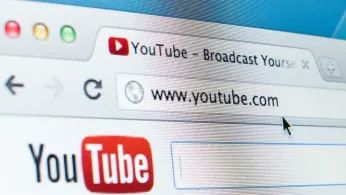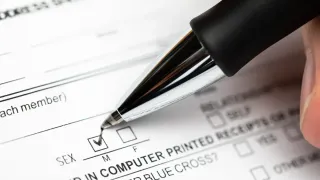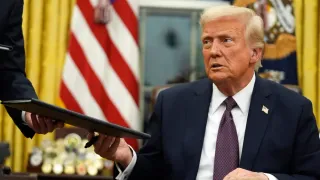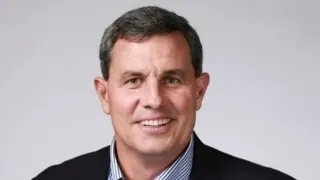
4 hours ago
YouTube to Reinstate Banned Creators - "Values Conservative Voices"
READ TIME: 3 MIN.
YouTube, the world’s largest video-sharing platform, has announced it will allow creators banned under its former COVID-19 and election misinformation policies to apply for reinstatement. This decision, confirmed in a letter from parent company Alphabet to the House Judiciary Committee, is part of a broader industry trend moving away from strict enforcement of content moderation on politically sensitive topics. The announcement comes amid growing scrutiny of how major social media companies balance free speech with responsible platform stewardship, especially as it impacts marginalized communities like LGBTQ+ people .
YouTube’s previous bans targeted creators who shared content violating site policies related to COVID-19 misinformation and false claims about the 2020 U.S. presidential election. These policies, introduced during the pandemic and after the election, were intended to curb the spread of dangerous falsehoods, citing public health and democratic process concerns. Notably, these restrictions led to the removal of high-profile accounts and generated significant debate about freedom of expression versus platform responsibility .
In 2023, YouTube rolled back its ban on claims of widespread 2020 election fraud. The following year, it ended standalone COVID-19 content restrictions, merging them into a broader medical misinformation policy. The recent decision acknowledges the role of political voices on the platform and reaffirms YouTube’s stated commitment to free expression, particularly around issues subject to political debate .
The shift follows mounting pressure on YouTube and other tech platforms to relax content moderation, especially from conservative lawmakers who argued that content policies disproportionately suppressed right-leaning voices. In its letter to the House Judiciary Committee, Alphabet alleged “repeated and sustained outreach” from the Biden administration to remove videos that did not violate YouTube’s own policies. Alphabet described such government intervention as “unacceptable and wrong” and claimed to have resisted these pressures on First Amendment grounds .
This development is part of a larger trend. Other social media giants, including Meta (Facebook, Instagram) and X (formerly Twitter), have also faced similar political scrutiny and have adjusted their policies accordingly. The result is an industry-wide shift toward looser enforcement, especially on politically charged subjects .
For LGBTQ+ communities, YouTube has long been both a haven for self-expression and a battleground over harmful content. The platform’s earlier efforts to curb misinformation aligned with calls from advocates for stronger protections against hate, harassment, and dangerous conspiracy theories that often target vulnerable groups, including transgender people, nonbinary individuals, and those living with HIV.
The reinstatement of previously banned creators—some of whom may have spread harmful misinformation or anti-LGBTQ+ rhetoric—raises concerns within the community about renewed exposure to content that could undermine the safety and mental well-being of LGBTQ+ viewers. Past research and advocacy have highlighted how misinformation and hate speech can directly lead to harassment, discrimination, and even violence against LGBTQ+ individuals .
On the other hand, some LGBTQ+ creators have themselves faced bans or demonetization due to YouTube’s automated moderation systems misclassifying their content as inappropriate. The new reinstatement process could potentially allow wrongly banned LGBTQ+ creators to return and rebuild their channels, provided they can demonstrate compliance with current policies .
Alphabet has not clarified whether all previously banned accounts will be automatically restored or if reinstatement will require a formal application and review process. It also remains unclear whether returning creators will immediately regain access to monetization features, which are a vital source of income for many influencers, including those from marginalized communities .
The company has stated that new, broader standards are in place, but details on how these will protect users from targeted misinformation or hate speech have not been made public. This ambiguity leaves LGBTQ+ creators and their allies watching closely to see whether the changes will prioritize free expression over community safety, or vice versa.
LGBTQ+ advocacy groups have called for greater transparency and participation in platform policy-making. They argue that any reinstatement process must include robust safeguards to prevent the resurgence of harmful narratives, especially those that have historically targeted queer and transgender people. These groups also continue to urge YouTube to consult with marginalized communities when considering major policy shifts .
YouTube’s policy reversal is a pivotal moment in the ongoing debate over free speech and online safety. For LGBTQ+ creators and viewers, the situation underscores the need for vigilant community engagement, transparent platform policies, and the continued fight for digital spaces that are both open and affirming.
As YouTube navigates this new landscape, the platform’s next steps will be scrutinized by lawmakers, public health officials, advocacy groups, and—most importantly—the diverse communities who rely on it for connection, education, and creative expression.






